
Gymnocalycium saglionis, the giant chin cactus, is a globular cactus species endemic to northwest Argentina.

Soehrensia schickendantzii is a cactus found in northwestern Argentina in provinces of Salta and Tucumán at elevations of 1600 to 3200 meters.
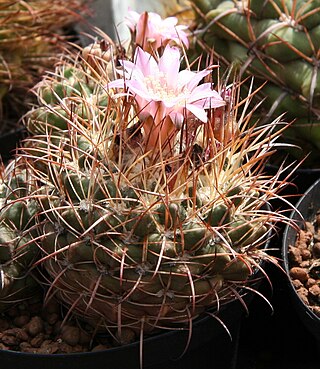
Neowerdermannia vorwerkii, also known as achakana, is a species of cactus from high altitudes in Bolivia and northern Argentina.
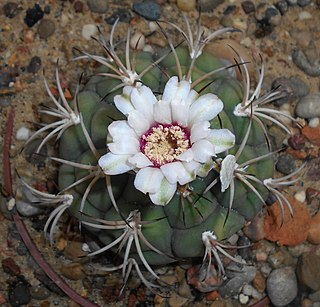
Gymnocalycium anisitsii is a globular cactus belonging to the family Cactaceae. The specific epithet honors the Hungarian pharmacist Dániel Anisits J. (1856-1911).

Gymnocalycium eurypleurum is a small "chin cactus" that is highly prized by cactus collectors and is known to be fairly easy to grow, albeit very slow

Gymnocalycium baldianum, the spider-cactus or dwarf chin cactus, is a species of flowering plant in the cactus family Cactaceae, native to the Catamarca Province in Argentina.

Gymnocalycium oenanthemum is a species of flowering plant in the family Cactaceae, endemic to Argentina. A slightly flattened sphere growing to 12 cm (4.7 in), it has 10-13 ribs, each containing a row of tubercles with radial spines. In summer it bears a wine-red or pink daisy-like flower.

Gymnocalycium monvillei is a species of Gymnocalycium from Argentina.

Gymnocalycium bruchii is a species of Gymnocalycium from Argentina.

Gymnocalycium amerhauseri is a species of Gymnocalycium from Argentina.
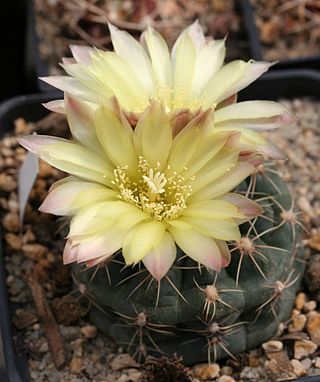
Gymnocalycium andreae is a species of Gymnocalycium from Argentina.
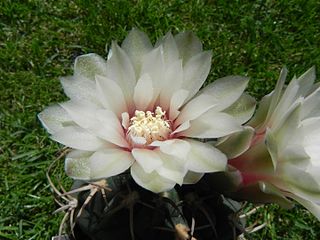
Gymnocalycium bayrianum is a species of Gymnocalycium from Argentina.
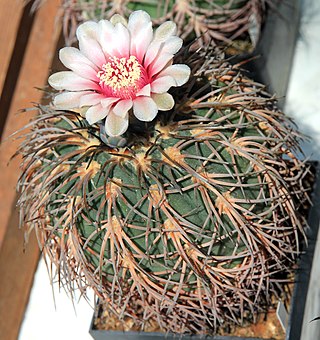
Gymnocalycium spegazzinii is a species of Gymnocalycium from Argentina and Bolivia named after the botanist C. L. Spegazzini.
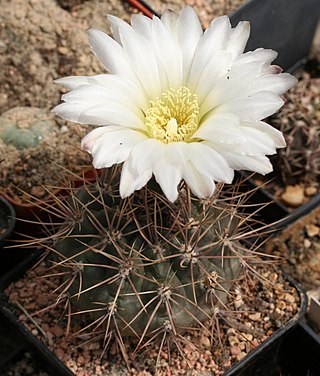
Gymnocalycium gibbosum is a species of Gymnocalycium from Argentina.
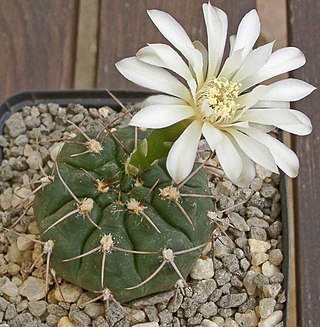
Gymnocalycium ochoterenae is a species of Gymnocalycium from Argentina.
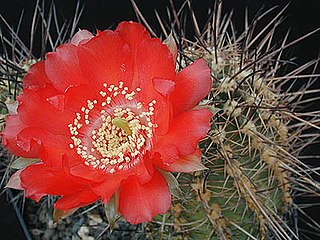
Echinopsis haematantha, is a species of Echinopsis found in Argentina and Bolivia.

Soehrensia huascha, is a species of Soehrensia in the Cactaceae family, found in north western Argentina. First published in Cactaceae Syst. Init. 29: 5 in 2013.
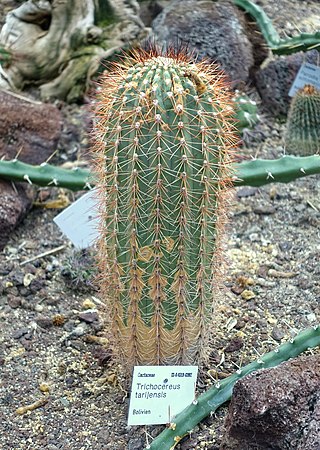
Soehrensia tarijensis, is a species of Soehrensia, in the cactus family. It is native to Bolivia and northwestern Argentina.
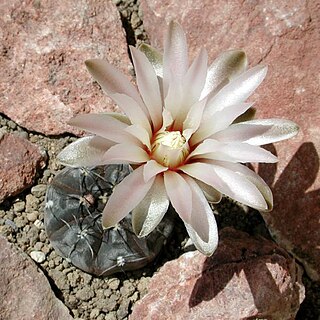
Gymnocalycium berchtii is a species of Gymnocalycium from Argentina.

Gymnocalycium capillense is a species of Gymnocalycium cactus from Argentina.





















